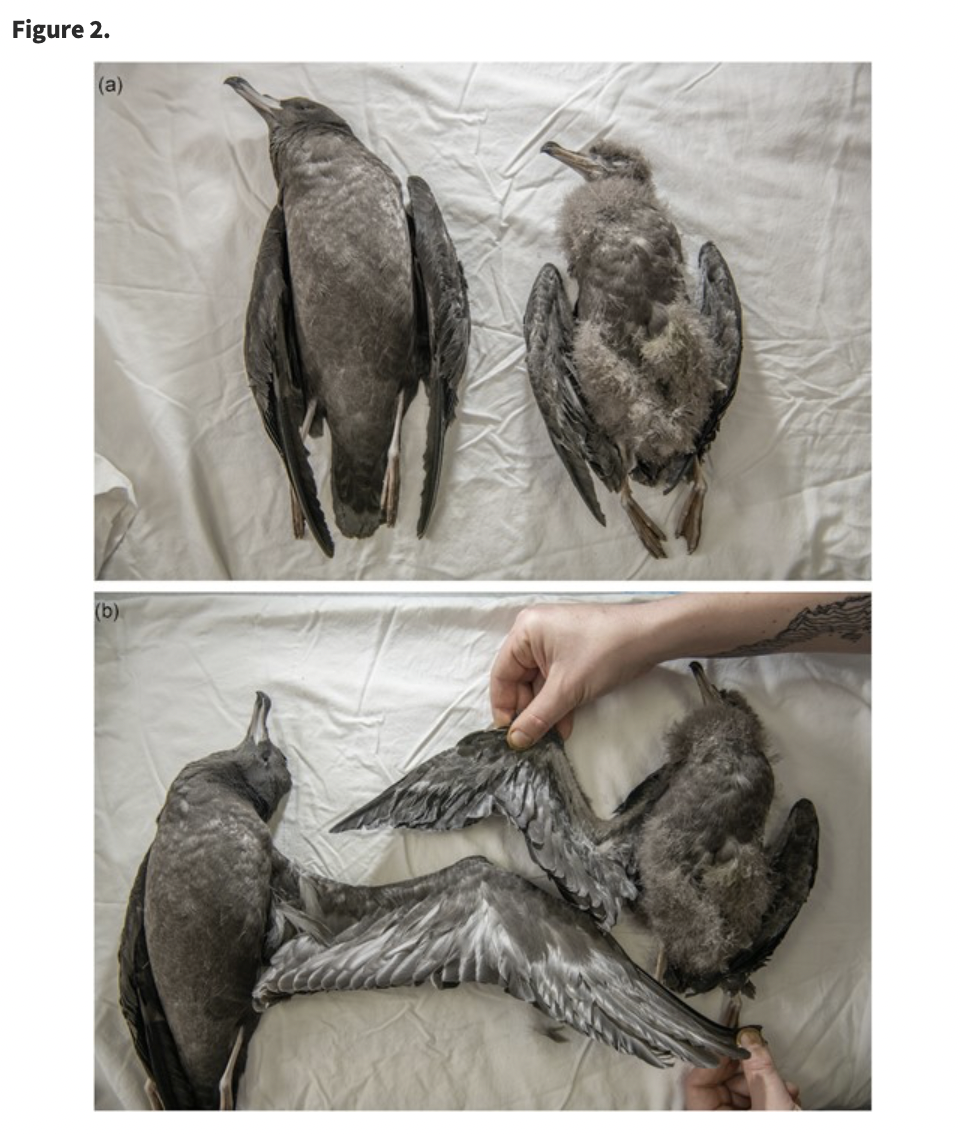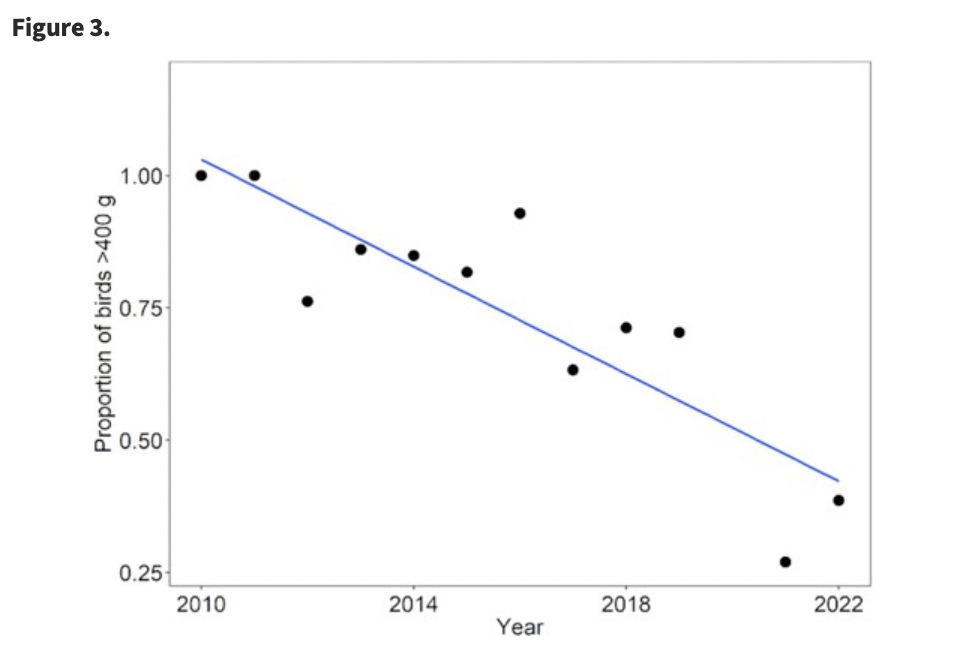 Fledgling Flesh-footed Shearwaters on Lord Howe Island in May 2022: (left) a healthy chick collected in the colony (hit by a motor vehicle) and (right) a similar age bird found washed up on the beach with substantially lower body mass, shorter wing length, and downy feathers
Fledgling Flesh-footed Shearwaters on Lord Howe Island in May 2022: (left) a healthy chick collected in the colony (hit by a motor vehicle) and (right) a similar age bird found washed up on the beach with substantially lower body mass, shorter wing length, and downy feathers
Jenn Lavers and Alex Bond (Bird Group, The Natural History Museum, Tring, UK) have published open access in the journal ICES Journal of Marine Science on the deterioration in fledging body condition of Flesh-footed Shearwaters Ardenna carneipes over the long-term.
 Proportion of fledgling Flesh-footed Shearwaters encountered on Lord Howe Island with a body mass >400 g during 2010–2022
Proportion of fledgling Flesh-footed Shearwaters encountered on Lord Howe Island with a body mass >400 g during 2010–2022
The paper’s abstract follows:
“Marine systems are under increasing pressure from anthropogenic activities. In recent decades, the deteriorating condition of the world’s seabird populations suggests these pressures have reached a tipping point. For young birds, body mass can significantly influence survival in the critical period between nest departure and recruitment to the breeding population. On Lord Howe Island, we measured Flesh-footed Shearwater (Ardenna carneipes) fledglings in the colony and adjacent beaches to determine how body condition changed during 2010–2022. Overall, we found chick body mass as well as wing, culmen, and head + bill length declined over time with larger declines observed in beach-washed birds. Culmen and head + bill length declined by 0.17 and 0.23 mm/year, respectively, and body mass by 16.1 g/year. The number of chicks fledging at <400 g has increased sharply in recent years, meaning significant numbers of birds are unlikely to survive after departing the island. Our results point to a deepening of the division in the shearwater population: adult birds who can successfully provision sufficient nutrient reserves so their chick fledges successfully, and those who cannot. In this latter group, failure at the fledging stage (beached birds) is resulting in birds in increasingly poor condition, the likes of which were seldom documented 13 years ago.”
Reference:
Lavers, J.L. & Bond, A.L. 2023. Long-term decline in fledging body condition of Flesh-footed Shearwaters (Ardenna carneipes). ICES Journal of Marine Science. https://doi.org/10.1093/icesjms/fsad048
10 April 2023

 English
English  Français
Français  Español
Español